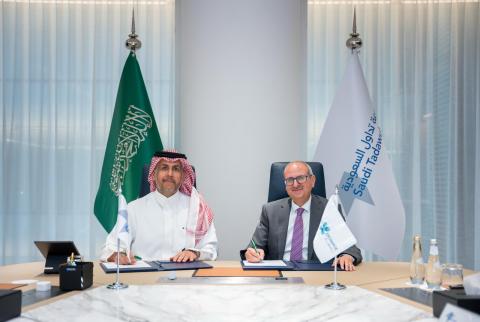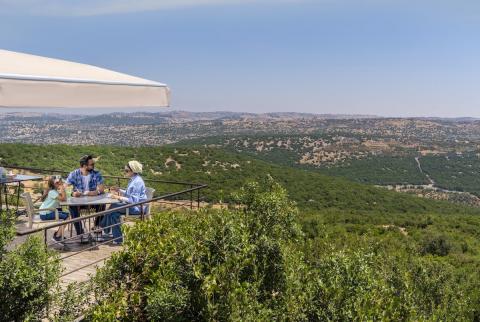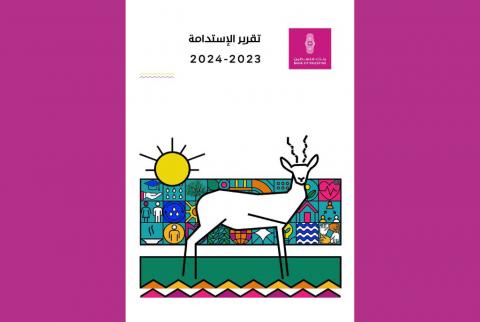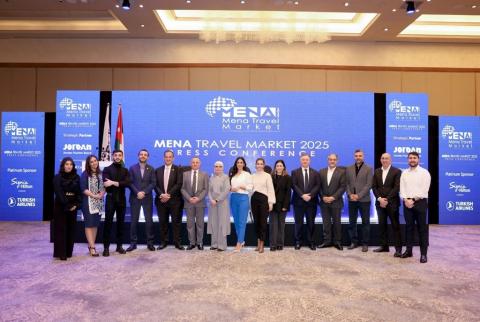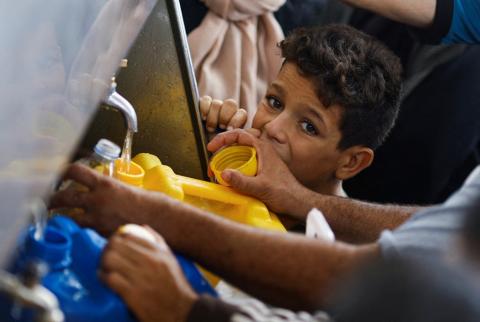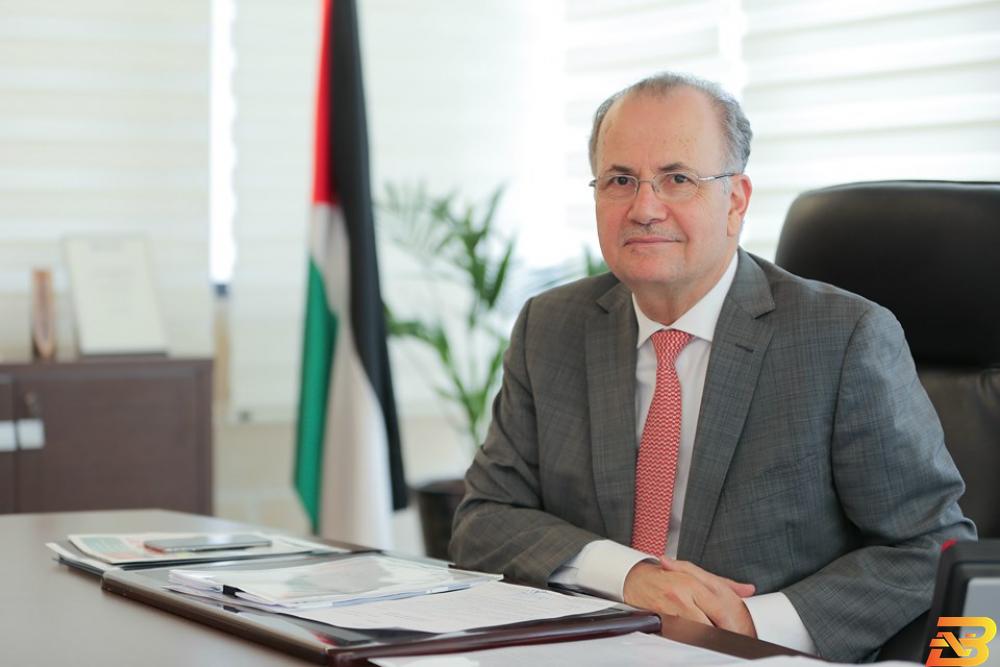
Ramallah (BNEWS)- Palestinian Prime Minister-designate Mohammad Mustafa said that he views reform of the Palestinian Authority’s institutions from a national context as a necessity and a national interest, indicating that it is an accumulated and continuous process, not a cosmetic one, and its ultimate goal is to reach a governance system that is solid, robust and accountable.
In a comprehensive interview with Arab World Press (AWP), Mustafa affirmed his confidence in overcoming the current stage amid the destruction and devastation caused by the war in the Gaza Strip, adding that now is the best time to work, not only to confront the ongoing circumstances, but also to develop a comprehensive vision that leads to ending the occupation and “achieving national rights to freedom and independence once and for all.”
Mustafa said that his plans include serious reforms in many areas.
“We seek to improve financial standards, achieve transparency, enhance revenues, rationalise expenditures, develop education and all services, especially healthcare, reduce bureaucratic procedures, strengthen the rule of law, enhance the rule of law and its independence, combat corruption, emphasise human rights and freedom of expression, enhance the role of civil society and oversight bodies, and prepare for legislative and presidential elections.”
He added, “The next government, although its mandate comes in challenging circumstances, will work at all levels, horizontally and vertically, and we will spare no effort to reach the stage of the last day before the establishment of the state, and we are confident of establishing the structure of the state and build on previous efforts in a way that leads us to the last day before the establishment of our independent state, in accordance with international legitimacy and the recognition of the world.”
“Zero Tolerance for Corruption”
Commenting on the common stereotype of the Palestinian Authority in the international media as a “corrupt authority,” Mustafa said that his government’s policy is “based on zero tolerance for any corruption in our national institutions. Our goal is full and comprehensive adherence to transparency standards. Through my practical experience while working at the World Bank and other places in the country, I am fully aware that the existence of an accountable government is crucial not only to garner international support and credibility, but most importantly, to gain the trust of our people who have suffered from decades of successive hardships and disasters.”
He added that his government will take a series of professional measures and will work to establish an executive office for institutional reform within the Prime Minister’s office, to develop, coordinate and implement reform plans across all government institutions, civil society institutions and the private sector in cooperation with institutions of the international community and specialized international organisations, such as the World Bank and the United Nations Development Programme.
He explained, “There are plans being finalised that include details of the tasks and work that this office will do, including priorities, areas, and immediate actions that can be initiated.”
Liberating Palestine “Once and For All”
Regarding the possibility of Palestine overcoming the current crisis amidst the massive destruction caused by the war, the Prime Minister-designate said that “the short and direct answer is: Yes, but the most important question is how?”
“We are very aware of the magnitude of the horrors that are occurring. The scale of destruction and deprivation that we have been experiencing and continue to experience since the beginning of the occupation cannot be described or imagined. We have lost over 30,000 martyrs in less than six months, and the number is horrifying, especially since 13,000 of them are children. Every day, approximately 10 children lose a limb in the Gaza Strip due to the continuous bombing, and about 17,000 children have been left without one of their parents, in addition to 70,000 wounded. The Israeli war machine has destroyed approximately 60% of Gaza's homes, while all systems, such as education and healthcare have collapsed, in addition to the lack of water, food and electricity. All these crimes are broadcast live before the eyes of the world.”
“The war and aggression in the West Bank are also very dangerous. Settlements continue, settler violence and terrorism are increasing, checkpoints are turning cities into small cantons, and our economy is suffering due to the piracy of our money, to the point that paying salaries and living a stable life have become difficult tasks.”
He stressed that Palestinians are at a dangerous juncture that raises questions about their ability to persevere and innovate a way out of this crisis, saying, “Therefore, we believe that this is the optimal time to work, not only to confront what is happening now, especially the priority of relief and then recovery for our people in the Gaza Strip, but also to develop a comprehensive vision that leads to ending the Israeli occupation and achieving national rights to freedom and independence, now, and once and for all.”
Mustafa believes that the tragedies caused by the “criminal war” have once again placed the Palestinian issue at the top of the world’s priorities.
He said, “It is our duty not to let these great sacrifices be in vain, and for this war to be the last in the liberation process, and to utilize everything that our great people created with their energy and capabilities, with comprehensive and collective participation behind such a vision that sets the ultimate goal of ending the occupation, and starts from the current situation at this moment - despite its tragedies – to draw up integrated plans that will lead us to there: stopping the war, relief, recovery, preparing for reconstruction, and in parallel working to empower and reform institutions, and establishing the rules of transparent, strong, and accountable governance, with full and comprehensive participation from all sectors of society, including civil society, diaspora, youth, women, forces, and factions.”
Despite describing the current situation as very difficult, Mustafa said that the Palestinians “can realistically address the humanitarian crisis, the economic crisis and the salary crisis, and even build the foundations of a solid economy, within a fair governance system. In short: we know the finish line and the vision is to map out the path from where we are to that end.”
He continued, “Each of us has responsibilities, and the international community has great responsibilities that it must bear politically, financially, and most importantly in confronting the occupation state. The time has come to liberate Palestine – once and for all.”
Mustafa also expressed his belief that the world has now become more determined to bring about real change, “because it has understood the message that this conflict cannot end without the Palestinian people achieving their rights. Therefore, we believe that it is now important to chart a clear path to stop the war and the humanitarian catastrophe in the Gaza Strip, and work to crystallize a roadmap of the vision mentioned, leading to ending the occupation and establishing an independent Palestinian state on the 1967 borders, with East Jerusalem as its capital.”
He equally called for an immediate, comprehensive, and permanent ceasefire “that will put an end to these crimes and stop the bloodshed.”
“What is required is to work with the international community to provide emergency humanitarian relief to our people in the Gaza Strip along with work to provide urgent basic services: electricity, water, education, health, and others. In parallel, working to launch an economic recovery process that enables the wheel of life to begin returning to normal. And then, of course, launching the reconstruction process, for which we are preparing all the details.”
“An Arduous Task”
Regarding the government’s approach to achieving its vision in light of the difficult economic situation, Mustafa said, “We are fully aware that this is an arduous task due to the occupation’s control over our resources, the piracy of our funds, and our decades-long dependence on foreign aid, which has begun to gradually decrease in recent years.”
“To confront this situation, we must work on several parallel paths. In the short term, we must find financial sources and leverage the international situation to stop the piracy of our funds. In the medium term, we must work on mechanisms that make these sources sustainable and immune to political blackmail. In the long term, we must diversify our sources of income and rationalise expenditures so that we can be on the right track to lay the foundations for a flexible national economy that is resilient and prosperous.”
Mustafa pointed out that there are significant financial obligations related to the rights of public employees and the rights of private sector suppliers, which are also related to services provided to the Palestinians, which must be addressed immediately. He said: “We are a strong and capable people, but we cannot do everything alone.”
“The situation is complex and difficult, but we must search and find solutions. With the help of the international community, our Arab brothers, and our private sector, including expatriates, we will be able to diversify our resources and create a flexible and prosperous economy that will reduce our dependence on foreign aid. I stress that achieving this must go hand in hand with the implementation of bold and decisive reform ideas based on realism, transparency and everyone’s participation.”
“The Priority Mission”
Mustafa revealed that his government's priority mission is urgent humanitarian relief in the Gaza Strip. He said, “We are working on finalising detailed plans related to forming a specialised team to follow up on the issue, especially coordinating aid with all local and international parties, and developing a comprehensive plan for aid in cooperation with these parties, including quick measures on the ground that ensure the collection, distribution, and efficient and fair delivery of aid. Of course, this will be done in parallel with economic recovery plans.”
Concerning reconstruction in the Gaza Strip, he said, “We intend to propose a plan that includes the establishment of an independent and specialised body managed by a professional and specialised team of experts to undertake reconstruction and to establish a trust fund to collect, manage and disburse the required funds in a transparent manner. The fund will be managed by one of the international institutions that has relevant experience such as the World Bank or the United Nations Development Programme.”
The Prime Minister-designate stressed that all detailed plans or those under preparation depend on integration and each party carrying out its responsibilities, including government institutions, ministries and civil society.
He said, “The authority and the specialised teams will work with the ministries and enable their work, and work with international institutions and coordinate and facilitate their work, and so on until each party assumes its responsibilities and implements what is required of it.”
Mustafa concluded, “I believe that sound and transparent governance, based on participation and comprehensive partnership for all parties, is the best way for the next government to achieve progress on the ground and to gain the confidence of our people and the international community alike.”


